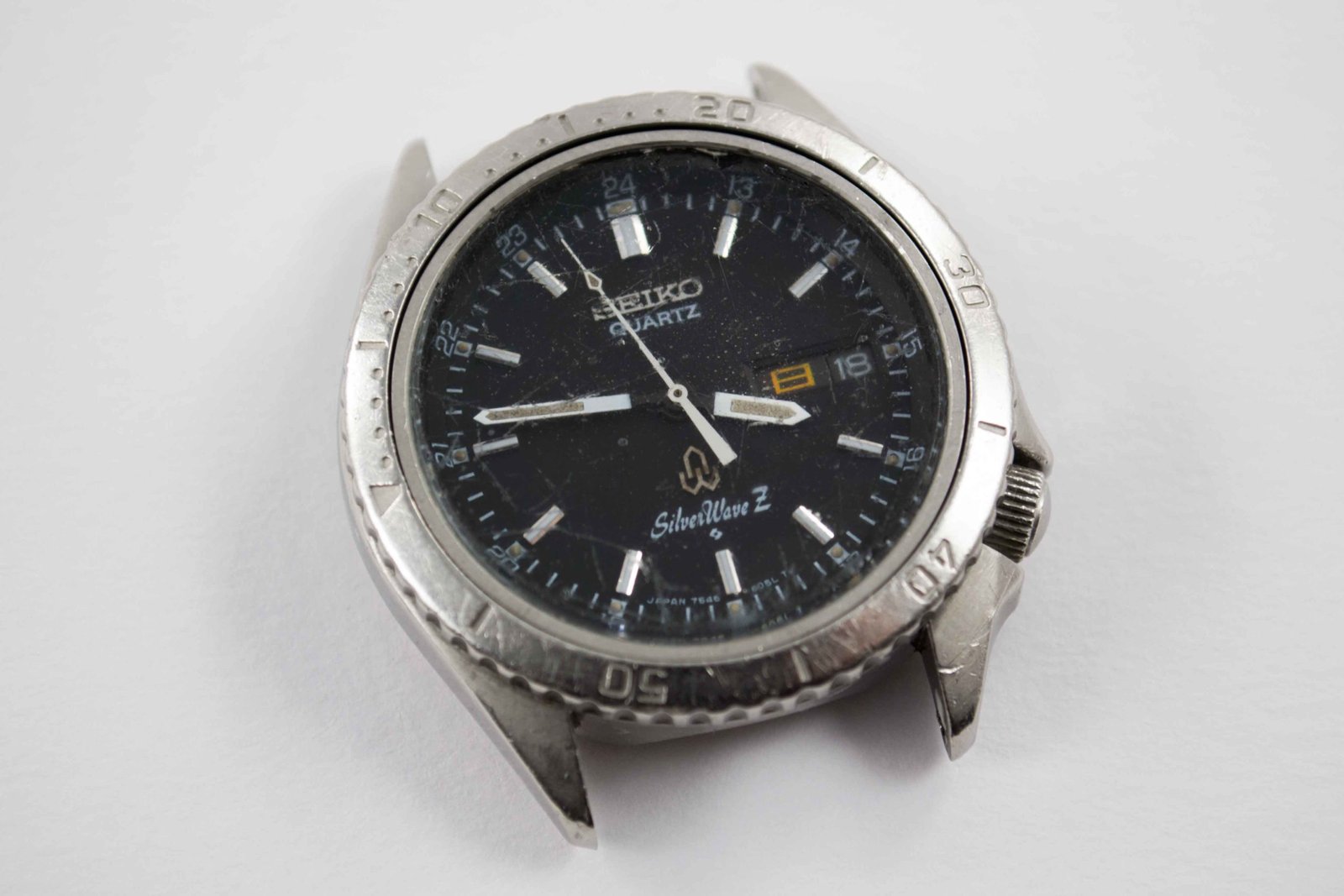Yes ladies and gentlemen, you can maintain a quartz movement! Of course there is a quartz watch and a quartz watch!
The quartz watch appeared in Tokyo on December 25, 1960. It was the birth of the Astron by Seiko. 100 copies with a gold case at the sweet price of ¥450,000, a brand new Toyota Corolla at that time.
Since that day and the upheaval it has produced in the watch industry, quartz technology has continued to improve and become more and more accessible. In my opinion, the golden age that combines overall reliability and affordable price is the late 70s and early 80s at Seiko. Quality watches for everyone!
If you want to understand everything about this technology, no one explains it better than Romain from the Elegance & Precision blog here “Functioning of a quartz watch”
Take a chair and a magnifying glass, today we are going to deal with a Seiko SilverWave Quartz, a model that I really like!
The subject of the day is a 7546-6050 reserved for the Japanese market which can be found in the 1978 catalog at the top left.
First sightings
The copy on the workbench needs a lot of care! This watch has lived and the movement does not work. The second hand is hesitant but does not move, this is a key clue to the breakdown: the gear train is blocked by old oils or debris.
Program of the day:
- Glass replacement
- Refurbishment of the bezel
- Movement revision
Ahead !
Glass replacement
All the trim parts are disassembled and ultrasonically cleaned. There is a lot of people !
The crystal is wedged between the bezel and a ring, an atypical construction in the watchmaking world but classic at Seiko at that time. The new glass is in place, we press.
The dial ring or “chapter ring” is installed in the case middle, the assembly can be installed.
Refurbishment of the bezel
The painting of the inscriptions has disappeared. To our brushes!
Satisfying isn’t it?
Movement revision
Take your screwdriver and your tweezers, we disassemble.
If you have followed the theoretical part of the link above, you will easily find the stator and the rotor.
All the mechanical parts are washed and then everything is reassembled with the appropriate oiling. We install a new battery and there …
Miracle ! The movement emerges from its deep coma.
Final result
Conclusion
Quartz is a superb technology often snubbed yet the advantages are there:
- The finesse of the movement and of the watch in general
- Impact resistance
- The precision
- Less expensive and longer maintenance
Of course, the Seiko 7546 movement is not particularly beautiful because it is not its vocation, but certain manufactures have lent themselves to the game:
I think the world of vintage Quartz has not yet been exploited enough by watch enthusiasts and there are still many beautiful pieces to discover. A universe under the radar and it is today that we must be interested in it, tomorrow it may be too late…
Seiko SilverWave Diver JDM 7546-6050 from 1978
